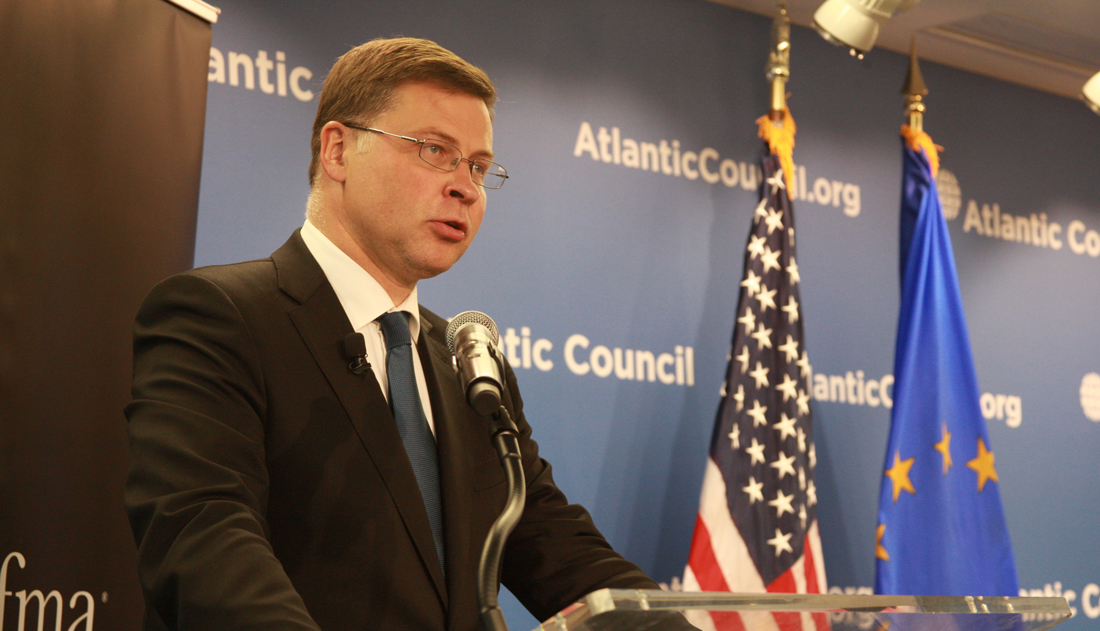WASHINGTON — The European Union probably won’t try to wrest a lucrative financial clearinghouse away from London anytime soon, but the euro-denominated business could eventually be moved to the continent, a top EU official says.
Valdis Dombrovskis, the new financial services chief of the European Commission, said the EU is in no rush to negotiate a shift in the headquarters of a clearinghouse that deals in trillions of dollars worth of investments every year. European and U.K. leaders have an array of important issues to work through before Britain can exit the union.
After Britain voted last month to leave the EU, French President Francois Hollande and other continental leaders pushed to strip London of its status as the euro-denominated clearing hub in the global derivatives market. But working out the details is likely to be complicated and all sides want to ensure no disruption in financial markets.
“I would not say this is the most urgent problem and the first issue now we’re dealing with,” Valdis Dombrovskis said Monday at an event in Washington sponsored by the Atlantic Council think tank. “But we cannot exclude the possibility this issue will be put back on table.”
The U.K. government is keen to ensure London remains a global financial hub if the country follows through with plans to leave the EU after the surprise victory by Brexit forces in last month’s voter referendum. The London and U.K. economies are heavily dependent on financial services, but continental rivals such as Germany, France and Italy are eager to take away some of the market.
The European Central Bank had sought to require the clearinghouse be in a country that uses the euro, but the central bank lost a lawsuit in 2015 that would have forced such a change. Even though Great Britain was part of the European Union, it kept its own currency.
The UK handled half of the $585 trillion global interest-rate derivatives contracts in 2013, the largest slice of the off-exchange derivatives market, according to most recent data from the Bank for International Settlements. Clearinghouses in the U.S. handled 23% of these transactions, French institutions 7% and German 4%.
Clearing firms stand between buyers and sellers, holding collateral from both, in case a participant defaults.
Dombrovskis also urged Great Britain to define its future relationship with the EU. He said the U.K. could take a middle path similar to Norway by becoming a member of the European Economic Area. That option would allow the U.K. to retain close ties to the EU but give the island nation more control of its own economy.
A sticking point could be the insistence of Brexit leaders that the U.K. be granted more control over who’s allowed to enter the country. EU leaders counter that the United Kingdom would still have to observe freedom of movement of goods, persons, services and capital across European borders.
Dombrovskis, Latvia’s former prime minister, took over the helm of EU’s financial-regulation chief on July 15 after the resignation of Jonathan Hill, Britain’s commissioner.
Photo at top: Valdis Dombrovskis, the EU’s new financial-services chief, leaves open possibility that a lucrative euro-denominated clearinghouse business in London could be moved to the continent. But it probably won’t happen any time soon. (Harvard Zhang/Medill News Service)


